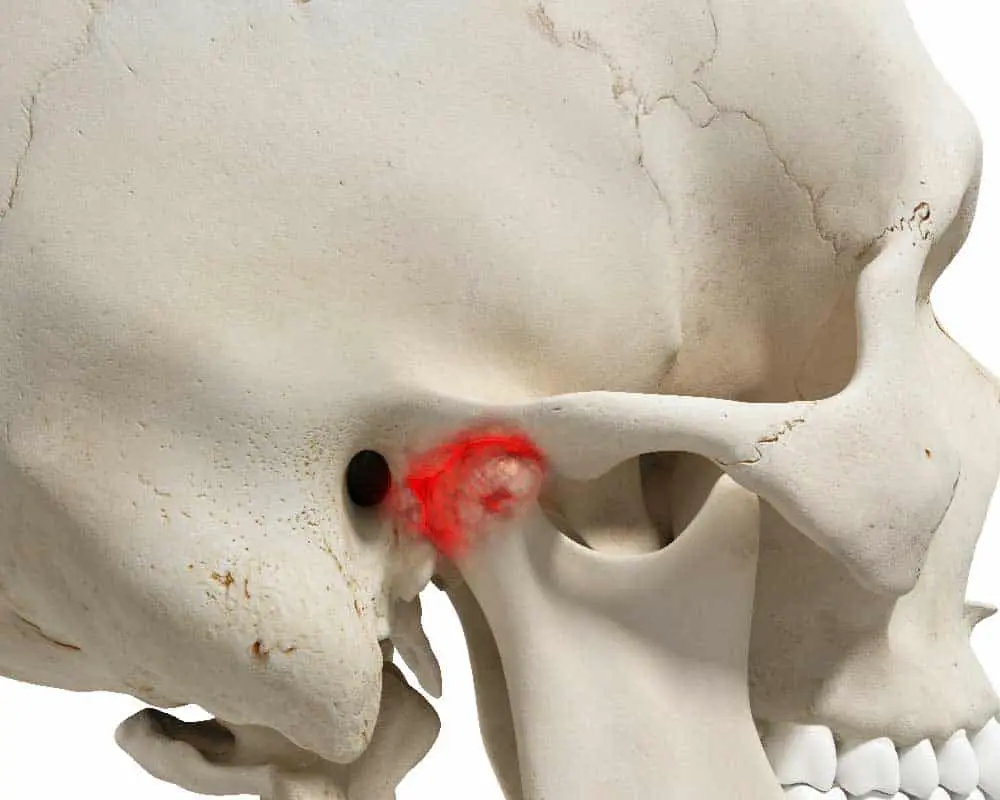TMJ Disorder is a type of temporomandibular disorder or TMD. The temporomandibular joint, or TMJ connects your jaw to your skull bones in front of your ear. The joint permits you to chew food, talk, and yawn. As you can see, ongoing pain to the temporomandibular joint can negatively impact your quality of life.
Fortunately, the experts at Palmetto Family and Cosmetic Dentistry use advanced techniques to provide effective TMJ disorder treatment. At our Sumter, SC, offices, oral splints are one of the most common TMJ treatments. The oral splint devices can alleviate pressure on your jaw joints to reduce inflammation and stop clenching and grinding. Our team of dentists can provide a definitive diagnosis and create a unique and effective treatment plan.
What Is TMJ Disorder?
TMJ disorder, also known as temporomandibular joint dysfunction affects the joints located on each side of your jaw near your ears. Because you use the joints so often, the area can often suffer structural damage. For instance, the soft interior discs that cushion the joints may slip out of place. When this occurs, the two sides of your joint will grind together causing TMJ pain.
Causes of TMJ
Often, daily actions such as chewing and speaking can lead to jaw pain. However, there are other causes of TMJ dysfunction. Dental trauma and bruxism are two causes of pain to the temporomandibular joint.
Bruxism or chronic teeth grinding is a common cause of TMJ symptoms. Many patients experience increased grinding when they are stressed. The constant pressure can seriously damage your temporomandibular joints. Additionally, bruxism will cause excessive wear to your teeth.
In other instances, dental trauma can affect your jaw health. Dental damage can also increase your risk of bruxism. For example, after an injury to the mouth or jaw patient may notice jaw popping or clicking. In turn, this could cause pain or discomfort. TMJ pain should not be ignored as it will not go away by itself.
Diagnosing the Condition
Frequently, your dentist can diagnose TMJ disorder based largely on your symptoms. Signs of this disorder may include:
- Jaw pain and tenderness
- A popping or clicking noise when you move your jaw
- Jaw stiffness or an inability to open your mouth all the way
- Ear pain
- Tinnitus, or ringing in your ears
- Neck and shoulder pain
- Chronic headaches
To provide a conclusive diagnosis, our dentist will also conduct a complete exam. He will observe your jaw movement and feel for significant inflammation or swelling. He may also take x-rays or digital scans of your jaw. Finally, he will inquire about your daily routine, posture, and diet.
Treatment Options
After your exam, your dentist will have all the information he needs to create a unique and effective treatment plan. In most cases, we will use oral splints to treat TMJ disorder. Your device will be custom-designed from dental impressions, and it will fit comfortably over your front teeth. When you wear it, typically only at night, it will exert a slight pressure on your lower jaw to push it forward. This will realign your joints to relieve pressure.
If bruxism is the root cause of your TMJ disorder, your dentist may provide an oral splint that will also stop teeth grinding. In some cases, he can provide a night guard instead. This type of guard will simply keep your teeth from touching without altering the alignment of your bite.
After your exam, your dentist will have all the information he needs to create a unique and effective treatment plan.
Alternatively, we may recommend restorative dentistry either as a standalone treatment or along with an oral appliance. For instance, if missing teeth have affected your jaw alignment, your dentist may recommend a bridge or dental implants. On the other hand, if you have suffered tooth erosion, or if you have unusually shaped teeth, dental crowns may be appropriate.
Finally, you may benefit from anti-inflammatory medications, especially to alleviate initial discomfort. After swelling and inflammation subsides, you may respond to subsequent treatment more effectively.
The Importance of Treating TMJ Disorder
Whichever treatment you ultimately receive, our care can have tremendous benefits. Without appropriate attention, your jaw pain could worsen, becoming severe and even debilitating. In some cases, the pain and ringing in your ears could even affect your sense of hearing. Pronounced jaw stiffness may affect your ability to eat, and you may have a much more limited diet. Fortunately, with our treatment, you could enjoy significant pain relief, complete oral function, and a healthy diet.

